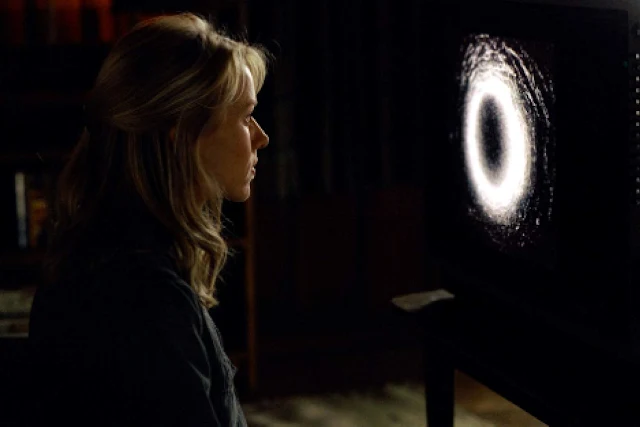 |
| Melissa Leo and Benicio Del Toro in 21 Grams |
Paul Rivers: Sean Penn
Cristina Peck: Naomi Watts
Jack Jordan: Benicio Del Toro
Mary Rivers: Charlotte Gainsbourg
Michael: Danny Huston
Marianne Jordan: Melissa Leo
Director: Alejandro González Iñárritu
Screenplay: Guillermo Arriaga
Cinematography: Rodrigo Prieto
Music: Gustavo Santaolalla
An egg is an egg no matter how you scramble it. You can whip it into a meringue or a soufflé or an omelet, but it still retains its eggness. The same thing, I think, is true of melodrama: There's no disguising its improbabilities and coincidences, its short cuts around motive and characterization, its intent to surprise and shock. Mind you, I don't have anything against melodrama. Some of my favorite films are melodramas, just as some of our greatest plays, even some of Shakespeare's tragedies, are grounded on melodrama. It's just that you have to approach it without pretension, which is, I think, the chief failing of Alejandro González Iñárritu's
21 Grams. The melodramatic premise is this: The recipient of a heart transplant falls in love with the donor's widow, who then persuades him to try to kill the man who killed her husband. It's the stuff of which film noir was made, but Iñárritu takes screenwriter Guillermo Arriaga's premise and scrambles it, using non-linear narrative devices -- flashbacks and flashforwards -- and casting an unrelievedly dark tone over it, as well as reinforcing a pseudoscientific message in the title, which is explicated at the end of the film. In 1907, a Massachusetts physician named Duncan MacDougall tried to weigh the human soul: He devised a sort of death-bed scales, which would register any loss of weight at the moment a patient died, thereby demonstrating to his satisfaction --
if not to the medical and scientific communities -- that the weight of the soul was approximately three-quarters of an ounce, or 21 grams. I suspect that Arriaga and Iñárritu meant the allusion to this bit of nonsense metaphorically, but it doesn't come off that way. By the end of the film, we are so weighed down with the misery of its protagonists that it feels like sheer bathos. This is not to say that
21 Grams is a total loss as a film. Iñarritu is one of our most celebrated contemporary directors, with back-to-back Oscars for
Birdman (2014) and
The Revenant (2015) to prove it. I just don't think he's found himself yet, but has become too caught up in narrative gimmicks that prevent him from delivering a completely satisfying film. There is much in
21 Grams to admire: The performances of Sean Penn, Naomi Watts, Benicio Del Toro, and Melissa Leo are as fine as their reputations suggest they would be. The narrative tricks are done with great skill, especially with the aid of cinematographer Rodrigo Prieto,
who uses color to make each of the narrative segments distinct from the others, so that when the film cuts from one to another, the viewer feels better oriented. And there's no denying the emotional impact of the film as a whole. It could hardly be otherwise, given the pain suffered by the protagonists: Cristina, who lost her husband and her two little girls; Jack, the ex-con who accidentally killed them and believes that it was all because Jesus wanted it to happen; and Paul, who finds his chance at a new life marred by knowledge that it was at the expense of other people's happiness. But in the end, all of this suffering is off-loaded onto us without any compensatory feeling of having been enlightened by it.













